For the Love of Trail Running: How Footprints Running Camp is Incubating Climate Action Projects
Photo by Max Romey
Footprints Running Camp is back for its third year, bringing exceptional people together for a week in the mountains for trail running, building meaningful connections and developing business plans to bring participants’ climate action projects to life and accelerate impact within their own communities. Footprints is a non-profit camp organized by professional trail runners and POW Athlete Alliance members, Dakota Jones and Nate Bender and since last summer’s camp concluded they have been working on ways to expand their reach and make the program offerings more robust.
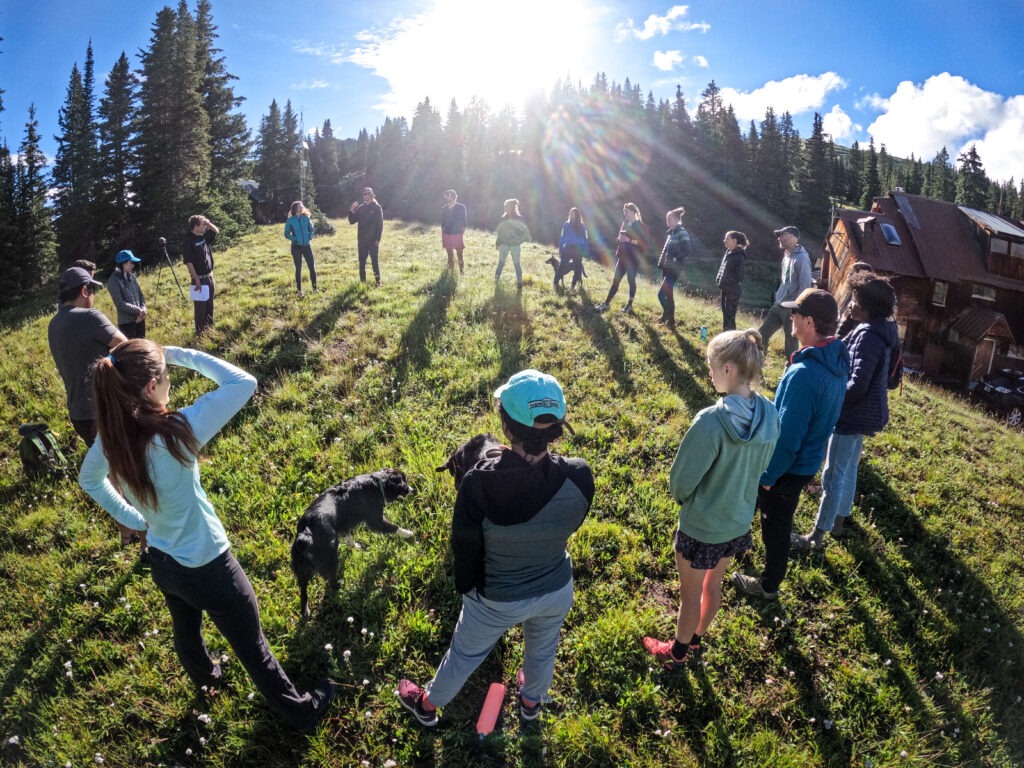
The Camps
For its third year we’ll see Footprints taking place both in Vermont at the Craftsbury Outdoor Center this September and in Victoria, Australia later this month. The camps will bring together 15 campers at each location with a focus on learning, bringing projects from an idea to something tangible through mentorship opportunities, as well as a great deal of fun.
“This year we’re able to have more campers with an even higher level of educational opportunities,” said Footprints Executive Director and POW Alliance member, Dakota Jones. “We have a lot of really amazing people, educators and experts of different fields of climate action who are advising us how to create the best educational program for the week.”
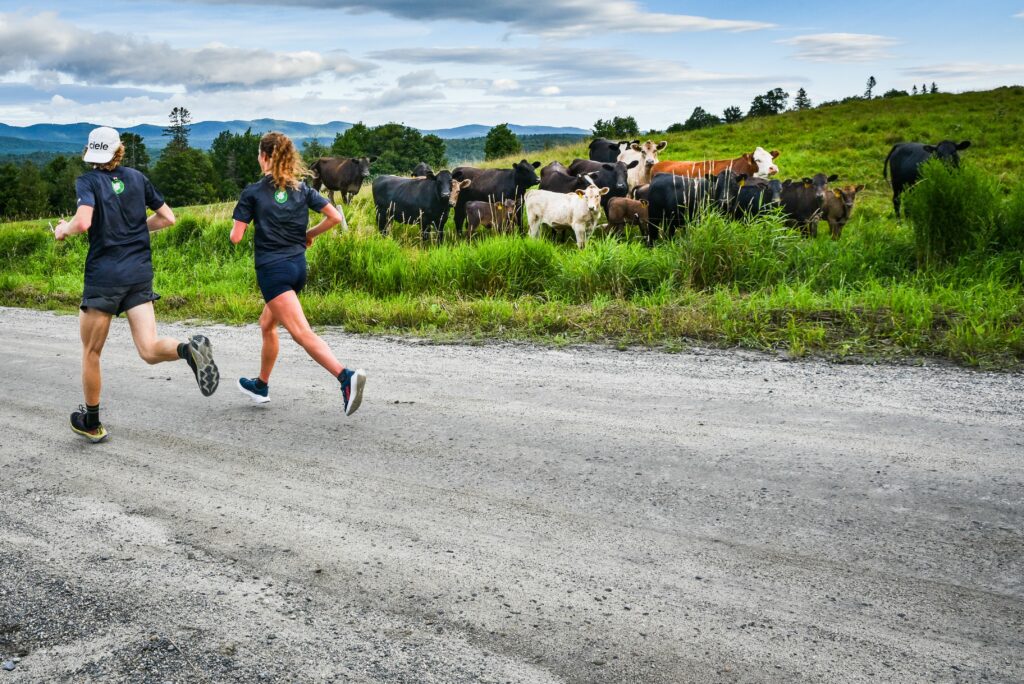
While there will be a change of scenery from the high alpine of Colorado’s San Juan mountains to the beautiful fall foliage and rolling hills of northern Vermont, the day to day of the camp will be the same as previous years. Everyone will wake up, have breakfast together, then go out for a group run or hike. “The run is an opportunity to do what we love together and have unstructured time to talk about projects and climate action in general,” said Jones.
After the run, campers will enjoy lunch and take a break before jumping into the mentorship sessions. “In the afternoon we dive into a mix of presentations from the mentors and activities to develop each individual’s project with the idea being that over the course of the week, their projects will be developed into something that is very tangible and measurable that they can take home and work on right away,” said Jones.
The evenings are then spent having dinner, playing games or just hanging out together.
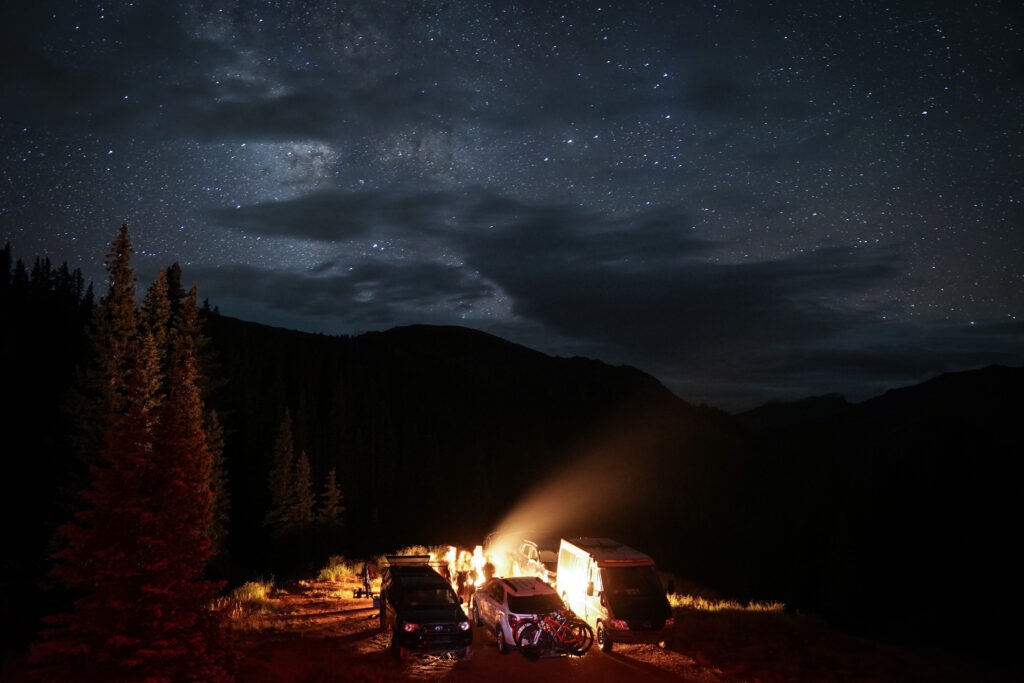
The Australian camp will run slightly differently based on what programming works best for their community. “We’ve been able to let them have a lot of latitude to do what works best for that space and that community, so the camp is going to be slightly different than the ones we do,” said Jones. “But I think it’s really exciting to see this work adapting to new places.”
Developing Actionable Projects
For the Vermont camp, the projects applicants should be focusing on are finding solutions for climate issues at the community level that they want to help solve. “We need to find the middle ground between big systemic levers we don’t necessarily have access to and individual action, which is too little too late,” said Footprints Marketing Director and POW Alliance member, Nate Bender. “We are helping people find their lever points in their communities and in the areas they’re already passionate about.”
The camp serves as an incubator for ideas to help get the projects off the ground with the help of mentors and fellow campers. Past projects have ranged anywhere from creating educational opportunities to helping improve water quality issues.
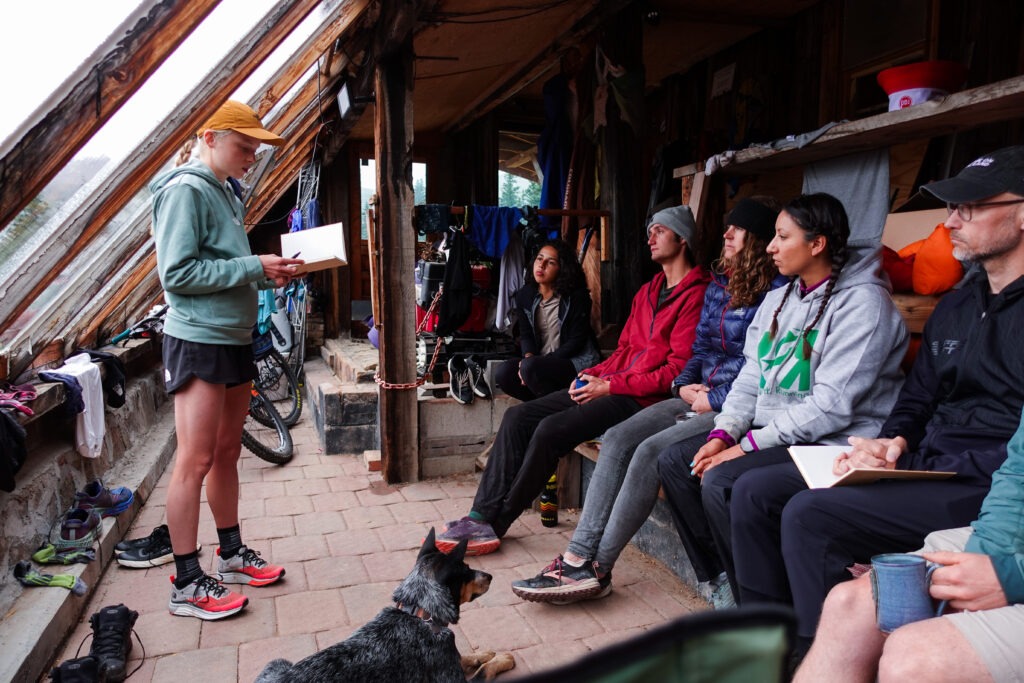
Jones says it’s inspiring to watch projects evolve over the years. In 2021, a camper named Abbie Sullivan from New York’s Finger Lakes region focused on water quality issues and harmful algae blooms that were closing down Canandaigua Lake for recreation. After the camp ended, she continued to work on her project with a local hydrologist from her community that has expertise in harmful algae blooms and presented it to the Canandaigua City Council to make a case for environmental action.
“She’s now directing a running race that will educate people on the issue while also raising money for the organization that’s helping her work on her project,” said Jones. “It’s been fun to see her carry that forward and the race will happen this summer.”
The Australian camp projects will contribute to ongoing campaigns working to protect an additional 355,000 hectares of native forests into National Parks with the Great Forest National Park Proposal. Each camper will be partnered with a variety of organizations working on that issue.
To make projects like Sullivan’s come to life, campers focus on key themes that pop up during the week and learn about things like ecological principles, the science of climate change and how to develop a business strategy. “We make sure everyone has a baseline understanding of ecological principles and climate change in general because it’s helpful for grounding everyone’s work,” said Bender. “You don’t need to be a climate scientist to know what you’re up against, but you need to be able to speak to it.”
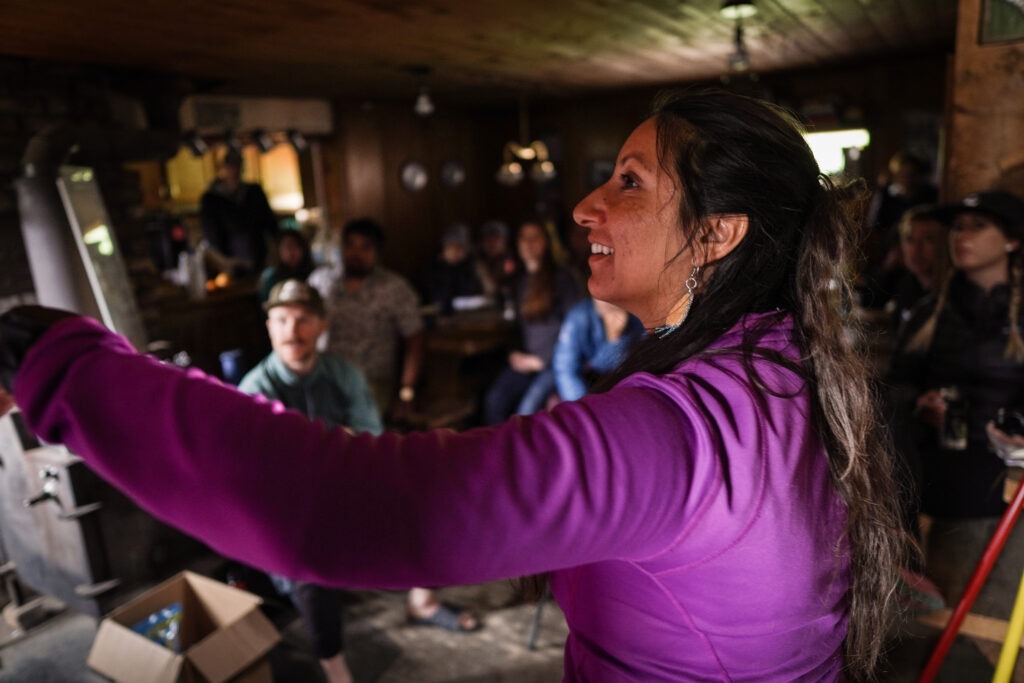
The mentors at the camp include everyone from PhD climate scientists to marketing professionals and many of the mentors are also POW Alliance members, including Len Necefer, Lydia Jennings, Connor Ryan, Abby Levine and Peyton Thomas. They will work with campers to develop a business strategy, think about themes around leadership and how to identify key stakeholders. There will be many group discussions and individual work to help develop marketing and business strategy while also learning about communications and leadership.
“Campers learn how to identify roadblocks and how to take something they’re really passionate about and turn it into a business model,” said Bender. “Then, they’ll start to poke holes in that with the help of their fellow campers and mentors.”
Bringing Projects Back to the Community
Over the last year Footprints has developed ways to carry on the mentorship program once the camp concludes and campers return to their own communities so that they can continue working on their projects at home. “We’re partnering with organizations and companies that do climate work so that we can feed our campers and their projects directly into real world opportunities to do that work,” said Jones.
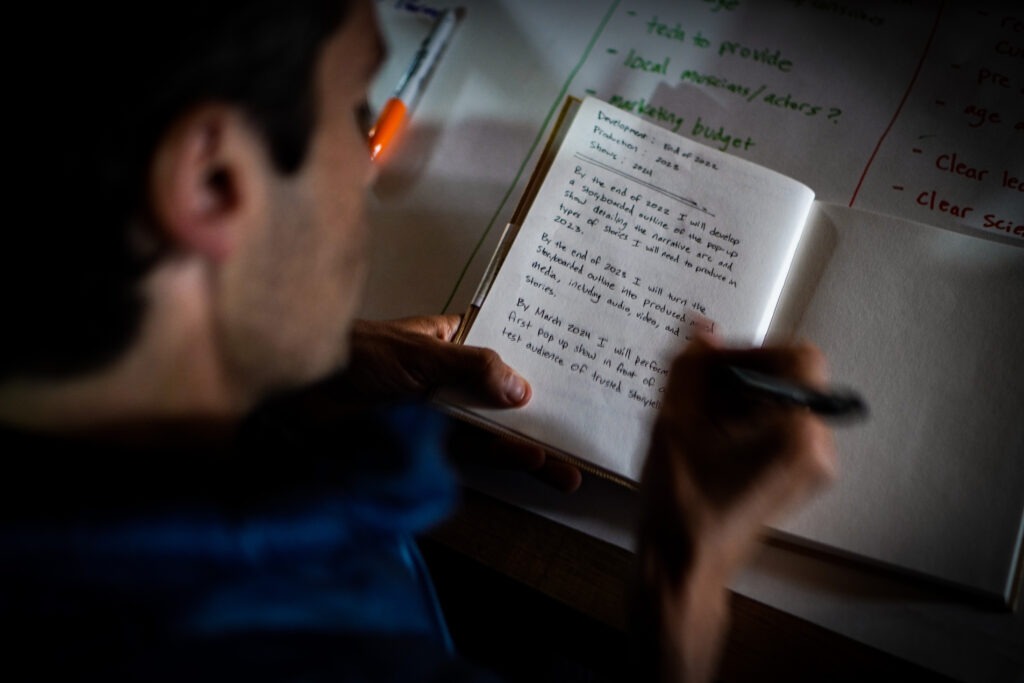
One way they will be helping connect campers with organizations is through a local trail race on the last day of the Craftsbury, Vermont camp as a way to connect campers with the community. “The idea is to bring the community to the race and showcase the work that the participants have been doing throughout the week and to bring people together for this thing we all love and get a lot of joy from,” said Bender. “We want to use this event as a springboard to having our participants take their ideas out into the world.”
The public will be able to sign up for a five or ten mile race for a small entree fee with all proceeds going directly toward supporting Footprints’ programming. Aside from creating a fun opportunity for the community, the goal of the race is that participants will bring connections and ideas for the camp graduates that will help them transition their work into the real world. When the race concludes, each camper will give an elevator pitch of their projects and ways for which the community can support them. “It will be a cool way to showcase the work they’ve been doing throughout the week and to spread connections through what we love—trail running,” said Bender.
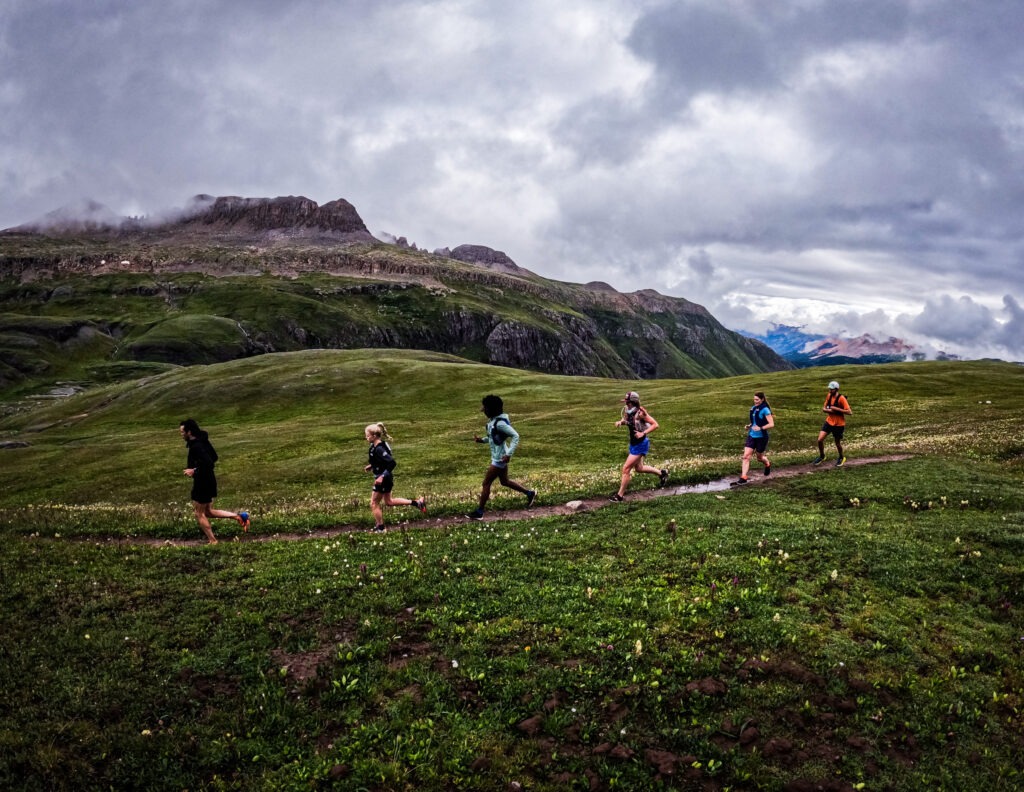
Jones says he hopes that campers will leave the camp feeling empowered and confident that they’re taking their projects in the right direction. “I think climate change is often incredibly overwhelming and it’s easy to become apathetic,” said Jones. “We’re not doing the biggest thing in the world. We aren’t senators or passing bills, but we are making progress and that feels real. We’re connecting with people who want to do this work and we’re empowering them in genuine ways so they come away from this work with the experience knowing no matter how small of steps they’re taking, they’re in the right direction and tangible.”
Registration is now open for Footprints Running Camp at the Craftsbury, Vermont location which will take place September 24 – October, 1, 2023. Prospective campers can submit their application through May 5. The Australian camp will take place April 20-25, 2023 and we’re stoked to see what projects come out of that camp!
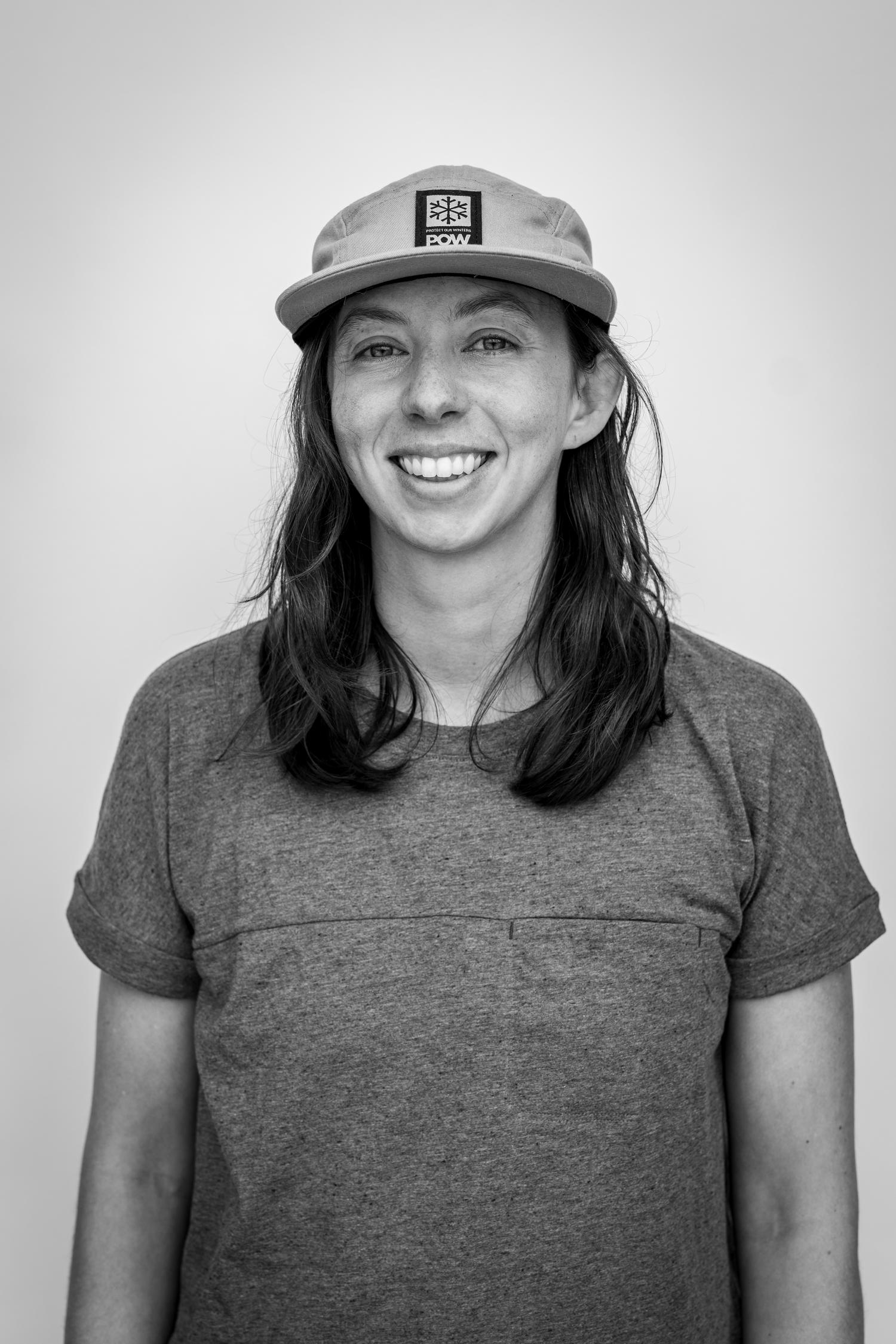
Author: Stacie Sullivan
Stacie always knew she wanted to pursue a career in the ski industry from a young age, having first clicked into skis at the age of 4 and writing her 8th grade career project on being a professional skier. While her dreams of becoming a professional athlete didn’t quite pan out the way she planned at […]
